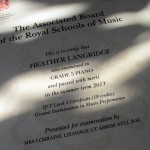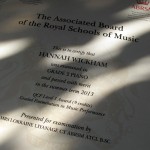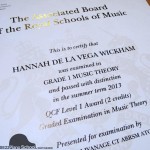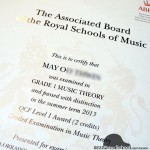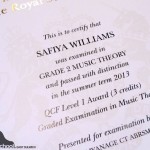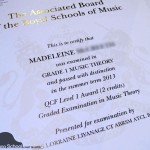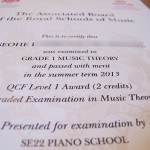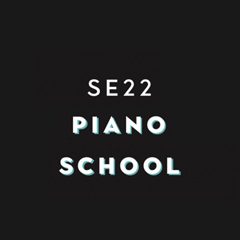In the final few days before your exam, here is some information for parents and students to make sure you are properly prepared for the exam. This is partly written as a guide for parents but it has information of relevance to adult students too.
1. Preparing for performance
You should perform all three pieces in a row to your family and friends. Make an occasion of it so that you feel under pressure as this will mimic the exam scenario. You can also record the performance of your three pieces and try to get them as good as you can in one take as you only get one chance to play them in the exam. Whatever happens – just keep going! Try not to restart – keep moving forward.
Also ask your school if you can play in assembly or in your music class. This is excellent preparation. We also provide termly performance opportunities including Scale Competitions, Masterclasses and the Dulwich Piano Festival. See our Events page to sign up for upcoming performance opportunities.
2. Listen to your pieces on Youtube
All your pieces are available to listen to on Youtube – just type in the name and composer and you will see lots of videos for your songs. Do you know where the louds and softs are, how fast or slow to play, whether you need to speed up or slow down anywhere? Do you know the character of your piece? Is it lively, melancholy? Listening to various recordings online can help assist learning of a piece. Your teacher will also play your piece to you regularly. Do your homework and make sure you have read the footnotes, looked up the composer (are they dead or alive, where are they from, what else did they write) and know the meaning behind the title of the piece.
Yohondo has a great YouTube channel with step-by-step help on some of the graded pieces: https://www.youtube.com/user/YohondoYT
3. Aural practice
This must be part of your daily practice for exams as this will help greatly with the aural section. There are several online resources or apps you can use to practice this every day.
Hofnote
Free Aural Tests
ABRSM App for iPhone/iPod/iPad
4. Sight-Reading
Sight-Reading is worth 14% of the marks – as much as the entire scale book! Keep working through the Specimen Sight Reading tests for your grade. If you have an iPad, then the excellent ABRSM sight-reading app is available for your grade.
ABRSM SightRead4Piano by Wessar
5. Scales
Ask your parents or friends to test you on the scales in a random order. Or you can make a ‘scale pot’ where you write out the name of every scale, broken chord, arpeggio etc and put these into a pot. Take one out of the pot and practice it until the pot is empty! As always, this must be done every day. We give all our students practice charts for their scales. These should be filled in daily – aim for ticks in all the boxes! Print a fresh chart each week. Students that work hard at their scales usually see a great improvement within just a few days. Practice your scales in random order so that you’re not always starting at the beginning of the book.

6. Daily Practice
In the run-up to the exam, daily practice is vitally important. To cover all the requirements for Grade 1, at least 30 minutes is needed and the time for practice increases by about 15 minutes daily for each grade. However, quality practice is of importance, so there is no point spending half an hour just practising your pieces but neglecting the other requirements. Make sure you practice your weaker areas first.
7. Parental supervision
It is important that parents supervise practice to ensure all the requirements above are covered thoroughly. Check the scale practice charts to see whether there are enough ticks in all boxes. Print these sheets out to fill in every day and bring to the lesson to show your teacher.
8. Mock Exams.
I have been doing mock exams each lesson. Please have a read through the mock exam to see what level your child is currently playing at and what grade they can expect on the day. The mock exam form will also highlight any weak areas that need particular attention. Please print some Mock ABRSM Exam Forms and bring to your next lesson.
9. Criteria used by the examiner in awarding a pass, merit or distinction.
Details of the exam marking scheme and what the examiner is looking for can be found here.

